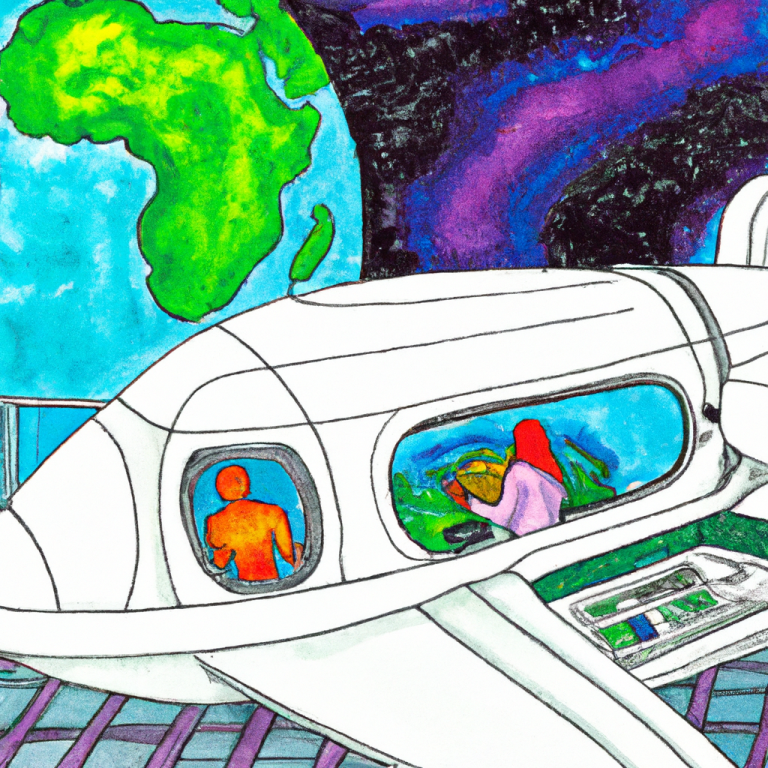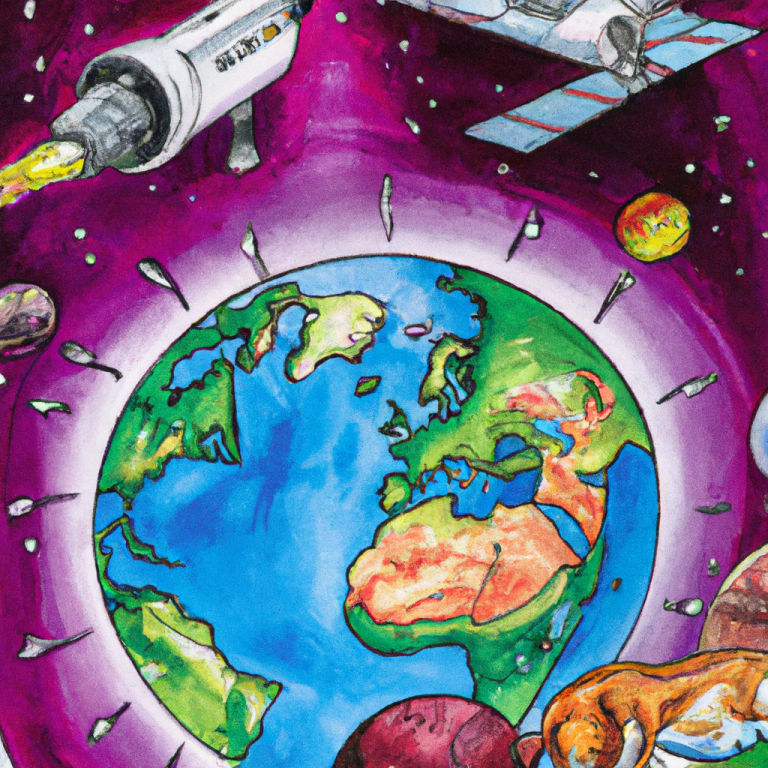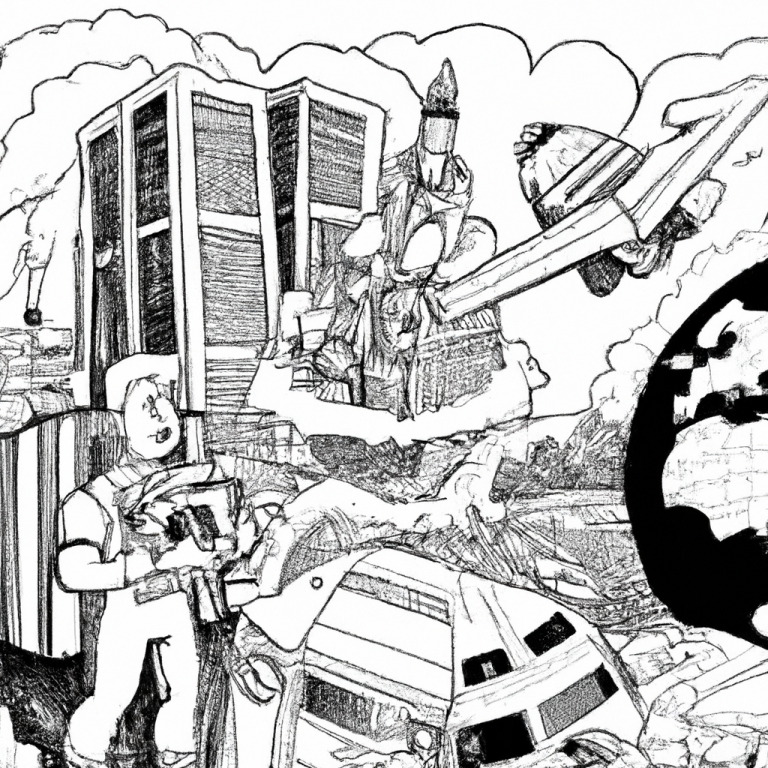
Introduction to Space Tourism
Since the dawn of time, human beings have been fascinated with the idea of space exploration. It wasn’t until the late 1950s, however, that this dream became a reality. On October 4, 1957, the Soviet Union launched the first successful satellite, Sputnik 1, into orbit around the Earth. This ground-breaking event marked the start of a new era in space exploration which has since grown exponentially.
In 1961, Soviet cosmonaut Yuri Gagarin became the first human to orbit the Earth, followed by the first spacewalk in 1965, when Soviet cosmonaut Alexei Leonov left a spacecraft and floated in space. The US then made history in 1969, when astronaut Neil Armstrong became the first person to walk on the Moon.
Today, space tourism is becoming a reality. Companies such as Virgin Galactic and SpaceX are offering suborbital flights, orbital flights, and even lunar tours – although these experiences come at a hefty price tag. Nevertheless, they offer a unique opportunity to experience the wonders of space firsthand, with safety protocols in place to ensure the safety of space tourists, and to protect the environment.
Space tourism also offers a number of potential benefits. By offering educational opportunities and inspiring future generations to pursue their dreams of space exploration, it can help foster international cooperation and understanding. Additionally, it can help us gain a deeper understanding of the universe and our place in it.
Space tourism is still in its infancy, but companies are investing heavily in its development. If successful, space tourism could become a major industry, making space exploration more accessible and affordable for everyone. It could open up a world of possibilities and help to make space exploration a reality for more people.
Space exploration is an exciting field, and space tourism is an incredible way to experience it firsthand. It offers a unique opportunity to experience the wonders of space and to help further our understanding of the universe. For those interested in space exploration, space tourism is an incredible way to get involved and to experience the wonders of space firsthand.

Unpacking the Possibilities of Space Tourism
The development of space tourism has been made possible thanks to the investments of private companies such as SpaceX and Blue Origin. The sheer amount of capital invested has enabled the construction of reliable and cost-effective spacecraft that can be used to transport passengers into space. This is an exciting prospect for the industry, as it could create thousands of jobs and promote economic growth, while providing the opportunity for research initiatives that could lead to new discoveries and technological developments.
Of course, there are also associated risks with investing in space tourism. The cost of constructing and launching spacecraft is exorbitant, and there is always the potential for delays or accidents. Additionally, a regulatory environment that could be unfavorable to space tourism could create further complications.
Innovations in science and technology have made space travel possible. Propulsion, communications, and navigation systems have all been advanced to enable the production of reliable and cost-effective spacecraft. New materials and processes have also been devised to make spacecraft more efficient and dependable, such as lighter and more durable materials, and reusable rockets. Additionally, navigation systems have enabled the accurate tracking of spacecraft and the safe return of passengers.
In order to ensure the safety of passengers, crew, and equipment, a number of safety measures and regulations are in place. These include harnesses, emergency protocols, and requirements for emissions control, noise pollution, and waste disposal. There is also the potential for further regulations and safety measures to be implemented in the future, such as those related to the safety of passengers, crew, and the environment.
Space tourism has the potential to be a major industry and could provide many benefits to the economy, research initiatives, and the environment. With the right investments and safety measures in place, the possibilities of space tourism are endless.

Overcoming the Challenges of Space Tourism
Exploring space is a captivating and thrilling prospect for many, but it is also accompanied by a variety of challenges. The primary difficulty of space tourism is the cost of space travel, which can be prohibitively expensive for the majority. In addition, there are also restrictions on human activities in space, which can limit the sort of activities that tourists can do. Lastly, traditional fuel sources are not sustainable and can be harmful to the environment, so alternative sources of fuel must be explored.
The cost of space travel is an immense obstacle for space tourism. A single seat on a space shuttle can cost millions of dollars, which is far beyond the means of most people. Nevertheless, there are ways to reduce the cost of space travel. Reusable launch vehicles, which can be utilized multiple times, are one of the most promising methods for reducing the cost of space travel. In addition, advances in technology such as 3D printing and artificial intelligence can also help to reduce the cost of space travel.
Human activities in space are also heavily regulated, as the safety of astronauts and tourists must be taken into account. Governments around the world have enacted various restrictions on human activities in space, such as limiting the amount of time that tourists can spend in space, as well as the types of activities that are allowed. Additionally, there are also restrictions on the types of equipment that can be used in space, and the types of experiments that can be conducted.
Finally, traditional fuel sources are not sustainable and can be damaging to the environment. As such, alternative fuel sources such as solar and nuclear power are being explored as potential replacements. Solar power has already been utilized to power satellites and other spacecraft, while nuclear power could potentially be used to power rockets and other spacecraft. In addition, advances in electric propulsion technology could also help to reduce the amount of fuel needed for space travel.
Space tourism is an exciting prospect, but it is also accompanied by a variety of difficulties. The cost of space travel is a major obstacle, as is the limitation on human activities in space. Additionally, traditional fuel sources are not sustainable and must be replaced with alternative sources. However, through the development of reusable launch vehicles, advances in technology, and exploration of alternative fuel sources, the challenges of space tourism can be overcome and the dream of space travel can become a reality.

Transforming Our World Through Space Tourism
Space tourism has become a reality in recent years, and it is revolutionizing our world in many ways. From entertainment and cultural encounters, to progress in scientific research, to a new comprehension of the universe, to economic and social advantages, space tourism is demonstrating to be a potent force for change.
When it comes to amusement and cultural experiences, space tourism provides an opportunity for people to experience the marvels of the universe from a new viewpoint. They can witness the beauty of Earth from the outside, take in the sight of faraway galaxies, and savor the thrill of weightlessness. Space tourism also offers an opportunity for travelers to experience cultural exchange with astronauts and other travelers from around the world. This can aid to cultivate understanding and appreciation between different cultures, as travelers from different backgrounds and nations explore the universe together.
Space tourism has also enabled advances in scientific research. Astronauts and other space tourists can carry out experiments and studies in space that would be impossible to do on Earth. This research can help us to understand the universe better, and make advances in areas such as astronomy, physics, and medicine. Space tourism has enabled us to gain a better understanding of the universe, and by allowing astronauts and other space tourists to observe and explore the universe, we can gain new insights into the workings of the universe and its many mysteries.
Finally, space tourism can provide economic and social benefits to both space travelers and the world at large. Space tourism can create jobs and generate income for those involved, while also providing a unique experience to travelers. It can also help to bring people from different cultures and countries together, as they explore the wonders of space together. This can foster understanding and appreciation between different cultures, as travelers from different backgrounds and nations explore the universe together.
Space tourism is a potent force for change, and it is transforming our world in many ways. From entertainment and cultural encounters, to progress in scientific research, to a new comprehension of the universe, to economic and social advantages, space tourism is demonstrating to be a powerful force for change. It is an exciting time for space exploration, and the possibilities for what we can learn and discover are boundless.
